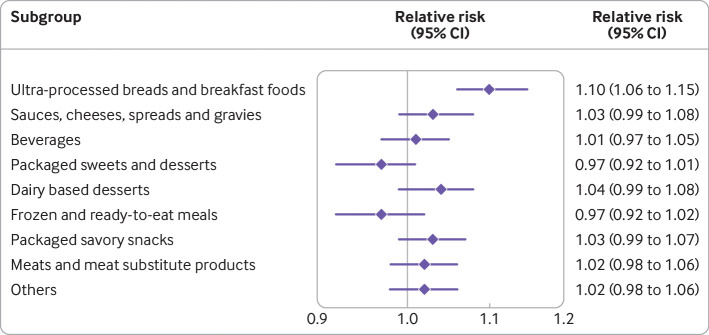Fig 2.
Association between maternal consumption of individual types of ultra-processed foods during child rearing period and risk of overweight or obesity in offspring. Relative risks and 95% confidence intervals were estimated for each one standard deviation increase in ultra-processed food intake using generalized estimating equation adjusted for maternal risk factors (baseline age, race, smoking, physical activity, total energy intake, Alternative Healthy Eating Index 2010, body mass index, personal history of chronic disease, living status, household income, spouse’s education), and offspring’s risk factors (sex, consumption of ultra-processed foods, physical activity, sedentary time). Individual types of ultra-processed foods were mutually adjusted

